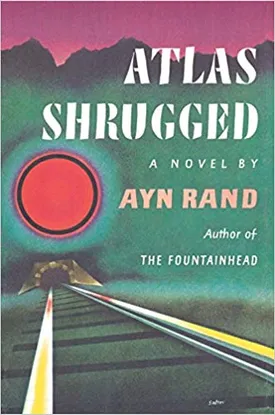Atlas Shrugged by Ayn Rand
Atlas Shrugged by Ayn Rand is a literary classic about a dystopian future United States and a battle for the soul of a nation. It’s still as relevant today as it was when it was released back in 1957.
The book follows two main characters, Dagny Taggart and John Galt, as they struggle to save an America that has been taken over by a society of lifeless bureaucrats who seek to place controls and regulations on business. The novel paints a vivid picture of a society where old-fashioned, traditional values have ceased to exist.
Through the lens of philosophy and economics, the novel explores the idea of powerful people taking responsibility for the future of the nation and fighting for individualism.
The novel is seen by some as a passionate defense of free-market capitalism, as it portrays business as a creative activity and value of individualism, as well as of the freedom that comes with it. Dagny and Galt take a stance against any type of government interference with the free market, arguing that it squanders economic and technological progress.
The novel also reinforces Rand's philosophy of Objectivism, a belief in the primacy of reason and individualism. Throughout the novel, Rand depicts the characters' decisions and actions as those of an individual choosing to pursue his or her own happiness, regardless of external pressures. This is the point of the novel as a whole: to argue that self-interest is not necessarily bad, so long as it is pursued without harming others.
Both the characters and the story of Atlas Shrugged are compelling and engaging. They bring to life the complex issues of power, individualism, and freedom, and show how these factors can come together to create a better world.
Atlas Shrugged is an exploration into the nature of power and of free markets, and how the two interact. It is a timeless and relevant book, with characters and a message that remain as relevant today as they did when it was first published. It is a must-read for anyone interested in economics, philosophy, or the complexities of freedom and individualism.

